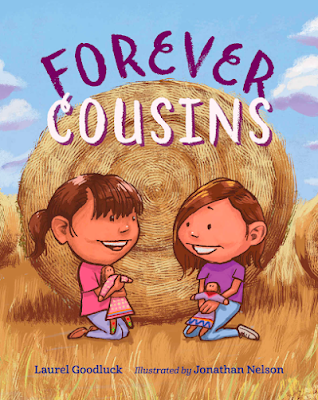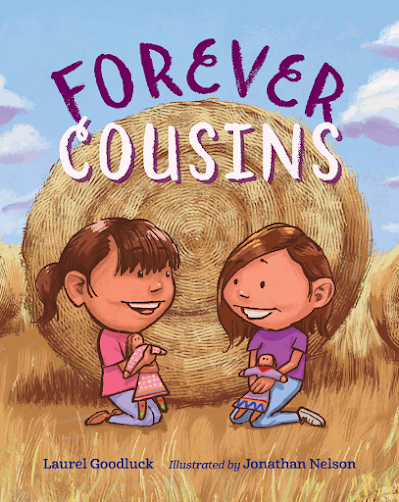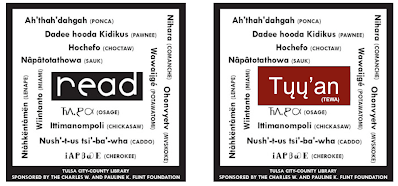I offer a special kú'daa (thank you) to Arigon Starr, for including her tribal nation--Kickapoo Tribe of Oklahoma--in her signature (I highlighted it and did a screen capture):
Who we are, as citizens of tribal nations, matters and the books we create for young people matter. They provide our children with mirrors of our experiences as Native people, and they provide non-Native children with windows that accurately bring Native life to them in ways that help them understand the entirety of who we are.
May 17, 2022
We, the undersigned, authors and illustrators of books for children and teens, condemn the efforts by organized groups to purge books from our nation’s schools. Our concern is not for the books themselves, but for the children, families, and communities who are caught in the crosshairs of these campaigns.
This current wave of book suppression follows hard-won gains made by authors whose voices have long been underrepresented in publishing. Just ten years ago, less than seven percent of children’s books featured characters who were Black, Indigenous, or people of color (source: Cooperative Children’s Book Center). Representation is finally increasing thanks to the work of groups like We Need Diverse Books. The current banning efforts are part of a strong and purposeful backlash against books written by BIPOC authors. Books with characters who are LGBTQIA+ have been vehemently targeted and frequently misrepresented.
When books are removed or flagged as inappropriate, it sends the message that the people in them are somehow inappropriate. It is a dehumanizing form of erasure. Every reader deserves to see themselves and their families positively represented in the books in their schools. These books are important for all children. Reading stories that reflect the diversity of our world builds empathy and respect for everyone’s humanity. At a time when our country is experiencing an alarming rise in hate crimes, we should be searching for ways to increase empathy and compassion at every turn.
A particularly insidious feature of the current attacks is the flood of accusations that anyone who seeks to give readers access to diverse books is a “groomer,” “radical,” or “pedophile.” These charges are abhorrent and without merit, and they have been leveled against not only authors, but against teachers and librarians. We strongly condemn this slander against our colleagues and our nation’s educators.
A book may not be for every student, but—as we know from the many letters we receive from young readers—a single book can matter deeply to an individual student. Nearly all campuses have an existing system to handle a parent’s concern with their own child’s reading material. Pro-censorship groups seek to overwhelm these systems by pressuring schools to pull entire lists of books from shelves “for review.” Some extremists have intimidated authors, educators, and school board members online and even threatened them with violence. This has created an atmosphere of fear that has led to “soft censorship” in many districts. Books are quietly removed or never purchased at all. Authors are never invited to speak, for fear of drawing the wrath of
these groups.
Libraries are bastions of the First Amendment. They provide equal access to a wealth of knowledge and ideas for all public school students. When individuals and organizations seek to advance their own political agendas or personal beliefs by censoring books, they infringe upon students’ constitutional rights.
We call upon Congress, statehouses, and school boards to reject the political manipulation of our schools, to uphold the values of freedom and equality promised in the Constitution, and to protect the rights of all young people to access the books they need and deserve.
Signed,
Judy Blume
Lois Lowry
Christina Soontornvat
Ellen Oh
Phil Bildner
Alex London
Dhonielle Clayton
Gordon Korman
Karina Yan Glaser
James Ponti
Minh Lê
Linda Sue Park
Nic Stone
Hena Khan
Katherine Paterson
Sarah Mlynowski
Meg Medina
Gregory Maguire
Stuart Gibbs
Julie Buxbaum
KA Holt
Juana Martinez-Neal
Nikki Grimes
Max Brallier
Samira Ahmed
Jim Averbeck
Louise Hawes
Rose Brock
Mary Brigid Barrett
Kyle Lukoff
Erika T. Wurth
Kate Hart
Andrea L. Rogers
Traci Sorell
Brian Young
Erin Entrada Kelly
Kathi Appelt
LeUyen Pham
Nisha Sharma
Debbie Reese
Kevin Maillard
Rick Riordan
Jacqueline Woodson
Cynthia Leitich Smith
Mo Willems
Jason Reynolds
Jeff Kinney
John Green
Raina Telgemeier
Tiffany D. Jackson
Mayra Cuevas
Rebecca Stead
Molly Idle
Bill Konigsberg
Joy McCullough
Liz Garton Scanlon
Elizabeth Eulberg
Adele Griffin
Laurel Snyder
Susan Campbell Bartoletti
Debbie Ridpath Ohi
Matt de la Peña
Cynthia Levinson
Bethany Hegedus
Elana K. Arnold
Audrey Vernick
Jason June
Tim Tingle
Jo Whittemore
ilene Wong Gregorio
Dawn Quigley
Supriya Kelkar
Jen Calonita
Jasmine Warga
Ronald L Smith
Victoria Aveyard
Rajani LaRocca
Jennifer Ziegler
Nidhi Chanani
Kami Garcia
Jeff Zentner
Gale Galligan
Angie Thomas
Dave Pilkey
Kate DiCamillo
Kwame Alexander
Avi
Jerry Craft
Dan Santat
Hope Larson
Varian Johnson
Romina Garber
Marianna Baer
Padma Venkatraman
Olugbemisola
Rhuday-Perkovich
Julie Murphy
Denise K. Lajimodiere
Laurie Devore
Soman Chainani
Jamie Lee Curtis
Mac Barnett
Megan Frazer Blakemore
Malinda Lo
Alex Segura
Kelly Yang
Naomi Milliner
Tracey Baptiste
Jon Scieszka
Veronica Roth
Shing Yin Khor
Supriya Kelkar
Shaenon K. Garrity
Alex Gino
Malayna Evans
Marie Lu
Laurel Goodluck
Randy Ribay
Courtney Summers
Jennifer Bertman
Libba Bray
Maulik Pancholy
Lin Oliver
Sarah Albee
Anne Wynter
Jessica Patrick
Kayla Cagan
Sara Ryan
Amy Spalding
Jordan Sonnenblick
Alexandria Giardino
Cory Putman Oakes
K-Fai Steele
Amy Novesky
Sayantani DasGupta
Erin Soderberg Downing
Donna Barba Higuera
David Bowles
Sarah Darer Littman
Nate Powell
Heidi E.Y. Stemple
Thyra Heder
Trung Le Nguyen
Mike Curato
Angeline Boulley
Barbara McClintock
Hannah Barnaby
Jeanne Birdsall
Steve Light
Maggie Rudy
Brian Floca
Malinda Lo
Jarrett J. Krosoczka
Sherri L. Smith
Nicole Maggi
Gideon Sterer
Ginger Johnson
Kara Thomas
Debbi Michiko Florence
Maryrose Wood
Kristin Cashore
Carolyn Mackler
Lauren Castillo
Margo Rabb
Beth McMullen
Mary Winn Heider
Natalie Standiford
John Rocco
Judy Blundell/Jude Watson
Brian Selznick
Laura Ruby
Jessica Lee Anderson
Susan Kralovansky
Amitha Jagannath Knight
Jenn Reese
Mariah Fredericks
Oge Mora
Farrah Rochon
Jason Chin
Lisa Fipps
Greg van Eekhout
Catherine Linka
Lisa McMann
David Hyde Costello
Kristin Cast
Janae Marks
Kip Wilson
Meredith Davis
Bethanie Murguia
Aisha Saeed
Cecil Castellucci
Fran Manushkin
Raphael Simon (aka
Pseudonymous Bosch)
Carrie Jones
Pat Miller
Katie Bayerl
Misa Saburi
Matt McMann
Maurene Goo
Brendan Reichs
Kaitlin Ward
Andrew Farago
Chris Grabenstein
Edward Underhill
Tracy López
William Alexander
P. C. Cast
Preeti Chhibber
Gayle Forman
Priyanka Taslim
Lyn Miller-Lachmann
Kate Messner
Robin Stevenson
Stephanie S. Tolan
Margarita Engle
Mike Jung
Casey W. Robinson
Deva Fagan
Adam Gidwitz
Jenna Miller
ER Frank
Natasha Donovan
Heather Murphy Capps
Isi Hendrix
Evan Turk
Jacquetta Nammar Feldman
Megan Reyes
Kim Rogers
Traci Chee
John August
Aron Nels Steinke
Sylvia Liu
Lauren Myracle
MaryBeth Timothy
Emily Skrutskie
Brandy Colbert
Arigon Starr (Kickapoo Tribe of
Oklahoma)
Melissa Stewart
Laura Shovan
Heidi R Kling
Laura Parnum
Susie Ghahremani
Alyson Gerber
Ruth Chan
Tui T. Sutherland
Jimmy Gownley
Andrea Wang
Kiersten White
Tara Dairman
Jen Ferguson
Fran Wilde
Dahlia Adler
Marc Tyler Nobleman
Steve Orlando
Melissa Walker
Mark Oshiro
Joe Cepeda
Trisha Moquino
Lamar Giles
Robert Liu-Trujillo
Mary McCoy
Amanda Foody
Alex R Kahler
Laekan Zea Kemp
Mike Maihack
Samantha Berger
Claribel A. Ortega
Terry Catasús Jennings
Tirzah Price
Lois Sepahban
Maria Gianferrari
Alexis Larkin
Olivia Chadha
Kalena Miller
Leslie Stall Widener
Z Brewer
Shane Pangburn
Pat Zietlow Miller
Violet Lumani
Terry Widener
Rosiee Thor
Pamela Ehrenberg
Sara Ackerman
Lev Rosen
Margaret Stohl
Alysa Wishingrad
Gia Gordon
Liselle Sambury
Tom Angleberger
Eliza Kinkz
M.T. Anderson
e.E. Charlton-Trujillo
Jessica Lewis
Victor Pineiro
Rebecca Balcárcel
Judd Winick
A.S. King
Anne Broyles
Lisa Robinson
Miranda Paul
Baptiste Paul
Kristy Boyce
Payal Doshi
Holly Black
Paul O. Zelinsky
Joseph Bruchac
Caroline Gertler
Alexandra Alessandri
Staci L. Drouillard
Carter Higgins
Kiku Hughes
Lisa Stringfellow
Elaine Vickers
Amy Noelle Parks
Andrea M. Page
Melissa Dassori
Wendy Mass
Sarah Hovorka
Lisa Varchol Perron
Esme Symes-Smith
Precious McKenzie
Greg Neri
Haley Neil
Marie Rutkoski
Ibi Zoboi
Amy Reed
HM Bouwman
Renee Ahdieh
Colleen Paeff
Sarah Kapit
Karuna Riazi
Anne Ursu
Lillie Lainoff
Jake Burt
Tina Connolly
Susan Cooper
Raakhee Mirchandani
Conrad Wesselhoeft
Samantha M Clark
Trisha Speed Shaskan
Amy Tintera
Mónica Mancillas
NoNieqa Ramos
Stephen Shaskan
Nicole D. Collier
Amy Ignatow
Tara Platt
Nina Hamza
Shawn Peters
Emily X.R. Pan
Jessixa Bagley
Lea Foushee
Deborah Heiligman
Betsy Bird
Anne Nesbet
Leslie Connor
Sue Macy
Veera Hiranandani
Miranda Sun
Cece Bell
Stephanie V.W. Lucianovic
Susan Kuklin
Jennifer Wilson
Martha Brockenbrough
Kim Turrisi
S.K. Ali
Patricia Morris Buckley
Elizabeth Blake
Lori R Snyder
Kirsten W. Larson
Jaime Formato
Saira Mir
Thomas Lennon
Judy I. Lin
April Jones Prince
Susan Azim Boyer
Jenny Han
Joana Pastro
Lindsay H. Metcalf
Gloria Amescua
Tamika Burgess
Lindsey Lane
M.O. Yuksel
Ingrid Law
Swati Avasthi
Will Taylor
Elisa Stone Leahy
Darshana Khiani
Abi Cushman
Andrea Menotti
Rochelle Hassan
Catherine Arguelles
Naz Kutub
Kara LaReau
Sarah Park Dahlen
Carol Kim
Nadia Salomon
Amanda Rawson Hill
Justine Pucella Winans
Lori Nichols
Laura Rueckert
Joanna Ho
Caroline Kusin Pritchard
Cylin Busby
Thi Bui
Sarah Street
Innosanto Nagara
Gigi Griffis
Ruta Sepetys
Adam Sass
Jen Wang
M.T. Khan
Katherine Applegate
Sheela Chari
Angela Burke Kunkel
Stephanie Burgis
Loree Griffin Burns
Jarrett Lerner
Jacob Sager Weinstein
Courtney Pippin-Mathur
Eliot Schrefer
Carole Lindstrom
Linda Urban
Jyoti Rajan Gopal
Jessica Young
Claire Bobrow
Andrew Maraniss
Steven Weinberg
Susan Eaddy
Trang Thanh Tran
Ann Braden
Jessica Vitalis
Lesléa Newman
Mika Song
Brendan Kiely
Brian D. Kennedy
Mónica Brown
Sean Petrie
Jo Knowles
Adib Khorram
Robert Broder
Karen Strong
Steve Sheinkin
Kathy Halsey
Breanna J. McDaniel
Kelly Starling Lyons
Sheri Dillard
Varsha Bajaj
Zoraida Córdova
Ryan T Higgins
Tameka Fryer Brown
Matt Tavares
Sarah Ahiers
Jamar Nicholas
Joanne Rossmassler Fritz
Meg Cannistra
Andrea Beatriz Arango
Peggy Thomas
Saraciea J. Fennell
Wendell Minor
Don Tate
Alicia D. Williams
E. Lockhart
Jane Yolen
Christine Heppermann
Anita Kharbanda
Linda Zajac
Brittany J. Thurman
Eric Smith
Charles Beyl
Charnaie Gordon
Renée Watson
Mari Mancusi
Molly B. Burnham
Alan Gratz
Kekla Magoon
Emma Carlson Berne
Gayatri Sethi
Debra Shumaker
Cynthia Platt
Vivian Vande Velde
Lisa Connors
Kate Klise
Reese Eschmann
Elizabeth Falk
Siman Nuurali
Valerie Bolling
Beth Ferry
James Riley
Nancy Ohlin
Jan Carr
Isabella Kung
Andrew Eliopulos
Elizabeth Acevedo
Grace Lin
Ellen Leventhal
Sheba Karim
David Small
Chris Tebbetts
Joyce Wan
Bree Paulsen
Corlette Douglas
Laurie Morrison
Sarah Warren
Abby Cooper
Daphne Kalmar
Sara Zarr
Jeanette Bradley
Javier Gimenez Ratti
Erin Petti
Stephanie Watson
Shadra Strickland
David Arnold
April Daniels
Leda Schubert
Gail Carson Levine
Kass Morgan
Eric Bell
Adam Rex
Julie Falatko
Sandra Nickel
Alliah L. Agostini
Alexandra Villasante
Olivia Abtahi
Rilla Alexander
Jennifer Gennari
Rachael Allen
Brad McLelland
Laura Gehl
Lisa J La Banca Rogers
Chantel Acevedo
Christina Díaz Gonzalez
Jenn Bishop
Laurie Halse Anderson
Crystal Allen
Dara Sharif
Anica Mrose Rissi
Marla Frazee
Matthew J. Kirby
Renee Kurilla
Becky Albertalli
John Claude Bemis
Brenda Seabrooke
Barney Saltzberg
Shanna Miles
Cristina Oxtra
Zoey Abbott
Heather Kamins
Ann Jacobus
Maria Scrivan
Loriel Ryon
Maria José Fitzgerald
Zack Loran Clark
S. Isabelle
Miriam Glassman
Gretchen McNeil
Matt Phelan
Kim Johnson
Jarrett Pumphrey
Kao Kalia Yang
Alechia Dow
Shannon Gibney
Margaret Peterson Haddix
Neal Shusterman
Ismée Williams, MD
Angela Quezada Padron
James Burks
Tanya Lee Stone
Sarah Klise
Laura Sibson
Lynne Kelly
Tamara Ireland Stone
Amber McBride
Ally Malinenko
Tracy Subisak
Deborah Underwood
Robin Yardi
Tashia Hart
Micah Player
Janet Sumner Johnson
Laurie Keller
Kalynn Bayron
Anne Greenwood Brown
Elisa Chavarri
Linsey Miller
Virginia Euwer Wolff
Cathy Ann Johnson-Conforto
Alli Brydon
Gene Barretta
Meg Fleming
Amy Lukavics
Julissa Mora
Kari Lavelle
Jacqueline Woodson
Mia García
Manju B. Howard
J.F. Fox
Tracy Barrett
Leigh Bardugo
Adriana Hernández Bergstrom
Catherine Alene
Maria van Lieshout
Sarah Meade
Janee Trasler
Bridget Hodder
Jenny Whitehead
Sue Fliess
Erzsi Deak
Gilly Segal
Kristen Simmons
Alexandra Monir
Jieting
Janet Fox
Kimberly Latrice Jones
Aminah Mae Safi
Laura H. Beith
Yamile Saied Mendez
Rocky Callen
Elisa Ludwig
Demetra Brodsky
Alison Pearce Stevens
Chrystal D. Giles
Michelle Nott
Amy Young
Michelle Coles
Kathryn Thurman
Josh Allen
E. Katherine Kottaras
Karen Cushman
Lauren Morrill
Marissa Meyer
Holly M McGhee
Laurie Wallmark
Amy Gilez
Kelly McWilliams
Katie McGarry
Abigail Marble
M.K. Farr
Elly Swartz
Margaret Owen
Mike Chen
Nancy Castaldo
Sheila McGraw
Laura Taylor Namey
Christy Mihaly
Tessa Gratton
Huy Voun Lee
Hayley Barrett
Melanie Ellsworth
Nikki Katz
Halli Gomez
Daria Peoples
Kirsten Miller
Kim Ventrella
Pam Munoz Ryan
Emmy Kastner
Jessica Verdi
Stephanie Greene
Kate Berube
John Coy
Rose Garcia Moriarty
Karen Yin
Vera Brosgol
Kim Holt
R.L. Toalson
Teresa Robeson
Sage Blackwood
Gennifer Choldenko
Mylisa Larsen
Priscilla Alpaugh
Amy Huntington
Aditi Khorana
Adrienne Maria Vrettos
David Goodner
Chris Barton
Rebecca Petruck
Rebecca G. Aguilar
TeMika Grooms
Tiffany Gholar
Lissette Norman
Amy Ewing
Kate Barsotti
Shannon Hale
Rachel Gozhansky
Julien Chung
Michelle Cusolito
Margaret Chiu Greanias
Kit Rosewater
Sarah Aronson
Allen R. Wells
Jodi McKay
Ellen Booraem
Christine Evans
Constance Lombardo
Suzanne Morgan Williams
Ann E.. Burg
Joan F. Smith
Anne AC Gaughen
Andrea J. Loney
Mary Bowman-Kruhm
Judith L. Roth
E. B. Goodale
Laurenne sala
Lisa Katzenberger
Sophie Cameron
Jessie Sima
Melanie Conklin
Diana Sudyka
Maxine Kaplan
Gina Rosati
Sarah Tomp
Cátia Chien
Karen Romano Young
Tonya Duncan Ellis
Ashley Hope Pérez
PJ McIlvaine
Tiffany Schmidt
Beth Revis
Marsha Hayles
Allan Wolf
Jewell Parker Rhodes
Fleur Bradley
Karen Jialu Bao
Venessa Vida Kelley
Cinda Williams Chima
Becky Scharnhorst
Jason Gots
Angie Isaacs
Hayley Rocco
Keely Parrack
Mackenzie Joy
Gareth Hinds
Lori Degman
Katie Slivensky
Lindsay Moore
Joanie Stone
Eric Fan
Gracey Zhang
Madelyn Rosenberg
Michael Leali
Charise Mericle Harper
Mary Crockett
Audrey Helen Weber
Pamela S. Turner
Peter Brown
Shirley Ng-Benitez
Elizabeth Shreeve
Hope Lim
Sally J. Pla
Marcie Wessels
Kimberly Gee
Cynthia Harmony
Henry Herz
Jennifer Wolfe/Bosworth
Cynthia Cotten
Alison Goldberg
Aamna Qureshi
Anna Kopp
Rita Williams-Garcia
Elisa A. Bonnin
Brooke Boynton-Hughes
Leslie Bulion
Farrah Penn
Heather Lang
Travis Jonker
Deborah Freedman
Holly Jahangiri
Stef Wade
Diane Magras
Sarah Jung
Caela Carter
Anne Ylvisaker
Nikki Barthelmess
Carson Ellis
Jen White
Dan Richards
Nicola Yoon
Jodi Meadows
Marcie Colleen
Mary Reaves Uhles
Susan Johnston Taylor
Laura Gao
Dori Hillestad Butler
Melanie Sumrow
Carol Joy Munro
Pam Fong
Julia DeVillers
Jolene Gutierrez
Carmen Rodrigues
Darin Shuler
Tanisia Tee Moore
Uma Krishnaswami
Chris Eboch
Arree Chung
Malia Maunakea
Laura Silverman
Richard Michelson
Ellen Hopkins
Robb Pearlman
Andrea Zimmerman
Faith Pray
Kimberly Brubaker Bradley
Jennifer E. Smith
J. Anderson Coats
Elise Gravel
Amanda Hosch
Ransom Riggs
Julia Kuo
Karen S. Chow
Dianne White
Corinna Luyken
Ty Chapman
Christine Taylor-Butler
Divya Srinivasan
A.J. Irving
David Wiesner
Lisa Moore Ramee
Gina Perry
Chuck Gonzales
Kelly DiPucchio
Jonathan Stutzman
bryan collier
Cheryl Keely
Kristin O’Donnell Tubb
Tamara Ellis Smith
Nancy Bo Flood
Dana J. Sullivan
Sharon Darrow
Amber Benson
Erika L. Jones
Chris Baron
Kelly Light
Dana Swift
Jamie Kiffel-Alcheh
Jennifer K Mann
Lynda Mullaly Hunt
Anna Meriano
Juliana Brandt
David Yoon
Corey Ann Haydu
Michelle Houts
Randi Pink
Jess Townes
Nicholas Solis
Kimberly Derting
Caroline Carlson
Ana Siqueira
Wendy Shang
Antwan Eady
Debbie Zapata
Tara Altebrando
Karen Rostoker-Gruber
Elizabeth Lim
Lisa Anchin
Alessandra Narváez Varela
Henry Neff
Megan Hoyt
Jia Liu
Cynthia Reeg
Cherie Colyer
Jessica Spotswood
Ben Clanton
Nina Crews
Aida Salazar
Laura Renauld
Lisa L. Owens
Skylaar Amann
Tracy Nishimura Bishop
Miriam Busch
Mae Respicio
Meera Sriram
Eric Velasqquez
A.M. Wild
Jacqueline Jules
Rachel M. Wilson
Marcy Campbell
Nancy Armo
Jennifer Fosberry
Jessica Pennington
Rosanne Parry
Nanci Turner Steveson
Toni Yuly
Lisa Thiesing
Joya Goffney
Shannon Hitchcock
Donna Gephart
Kendare Blake
Denise Lewis Patrick
Fiona Cook
Erica S. Perl
Sara Raasch
Scott Schumaker
Paige McKenzie
Julia Alvarez
Sana Rafi
Chris Garcia-Halenar
Diana López
Katie Mazeika
Jacqueline West
Helaine Becker
Blythe Russo
Fahmida Azim
Jody Feldman
Monica Wesolowska
Gordon C. James
Tracy Deonn
Mariana Llanos
Megan Whalen Turner
Mark Holtzen
Tatjana Mai-Wyss
Lily Williams
Barb Rosenstock
Janie Bynum
Cathy Camper
Selina Alko
Jamilah Thompkins-Bigelow
Kari Allen
Molly Beth Griffin
Heather Fox
Rita Lorraine Hubbard
Barbara Dee
Anne Hunter
Lola M. Schaefer
Katie Davis
Yuyi Morales
Kristen Schroeder
Carolyn Crimi
Karen Schneemann
Ena Jones
Tara Lazar
Alyson Greene
Saundra Mitchell
Laura Murray
Stan Yan
Freeman Ng
Carmen Oliver
Jess Redman
Nicole Chen
Tahereh Mafi
Dow Phumiruk
Jessica Lanan
Jessica Petersen
L. E. Carmichael
Laura Purdie Salas
Lindsay Currie
Ann Bonwill
Carrie Finison
Mary Lou Peacock
Viviane Elbee
Anna Sortino
Ellen Hagan
Sabina Hahn
Carolyn Marsden
Joanna Cooke
M. K. England
Shannon Messenger
Lisbeth Checo
Curtis Manley
Elizabeth Brown
Carrie Firestone
Victoria Ying
Lucy Morris
Jon-Erik Lappano
Melissa Iwai
Kurtis Scaletta
Sonya Sones
Tricia Elam Walker
Marissa Moss
Korey Watari
Kaija Langley
Sarah Kurpiel
Alyssa Colman
Natasha Anastasia Tarpley
Patricia Wiles
Charles R. Smith Jr.
Mike Wu
Eric Elfman
Shelley Pearsall
Katey Howes
Jacci Turner
Victoria M. Sanchez
Maya Prasad
Benson Shum
Lisze Bechtold
Zara González Hoang
Jess Brallier
Denis Markell
Zetta Elliott
Dinah Johnson
Lenore Appelhans
Pete Hautman
Erika R. Medina
Marti Dumas
Kaz Windness
Meredith Steiner
Laura Freeman
Guadalupe García McCall
Aram Kim
Shelly Anand
Fiona Halliday
Lenny Wen
Margery Cuyler
Rachael Lippincott
Betty C Tang
Anne O’Brien Carelli
Cindy L. Rodriguez
Susan Kusel
Tricia Springstubb
Julie Hampton
Cheryl Willis Hudson
Patricia Toht
Lisa Fields
Gene Luen Yang
Pat Cummings
Anitra Rowe Schulte
Leslie Kimmelman
Tony Piedra
Kathryn Otoshi
Rahele Jomepour Bell
Megan Paasch
Karen Gray Ruelle
Gaby D’Alessandro
Annie Silvestro
Pat Mora
Jasminne Mendez
Megan Bannen
Lauren Abbey Greenberg
Jamie Sumner
Veronica Rossi
Becky Herzog
Peter Pearson
Reggie Brown
Jennie Palmer
Victoria J Coe
She Ganz-Schmitt
Wade Hudson
Lilliam Rivera
Kim Smejkal
Nina Victor Crittenden
Tim McCanna
Joan Broerman
Sarah Plotzker
Kati Gardner
Sarah Henning
Jaime Berry
Lisa Schmid
Susan Muaddi Darraj
Aya Khalil
Lauren Paige Conrad
Anne Key
Zeena M. Pliska
Maleeha Siddiqui
Heather Brockman Lee
Peter Arenstam
Nicole Lesperance
Salima Alikhan
Tammi Sauer
Shirin Shamsi
Norene Paulson
Addie Tsai
Melissa Sarno
Sara K Joiner
Jennifer J. Stewart
Elissa Haden Guest
Cindy Derby
Shawn Harris
Alison Hawkins
Amy Wachspress
Brizida Magro
Sarah Raughley
Sarah & Ian Hoffman
Morgan Matson
Kristen Balouch
Sheetal Sheth
Janice Chiang
Kristy Acevedo
Sara Pennypacker
Julie Hedlund
Lindsay Leslie
Melissa de la Cruz
Nancy Werlin
Bonny Becker
Aimee Lucido
Deborah Halverson
Icy Smith
Haydee Zayas-Ramos
Nazareth Hidalgo Lobo
Esmeralda Santiago
Angelica Shirley Carpenter
Patricia Newman
Paula Yoo
Christina Francine
kevan atteberry
Jean Reagan
Ellen Wittlinger
Laya Steinberg
Francisco Jiménez
Bruce Coville
Theo Baker
Sarah Dessen
Krystal Quiles
Nelly Buchet
Mike Grosso
David Levithan
Julian Winters
Liza Wiemer
Isabelle Adams
Diane Telgen
Ann Brashares
Matthew Gollub
Karen B. Winnick
Kendall Kulper
Jeannine Atkins
Anika Aldamuy Denise
Cecilia Bernard
Alison McGhee
Dianne K. Salerni
Deborah Lakritz
Laura Rivera
Patti Sherlock
Peter Lerangis
Lynn Fulton
Christy Webster
James McGowan
Jon Klassen
Jesse Klausmeier
Genevieve Godbout
Christopher Weyant
Stephen Bramucci
Alison Green Myers
Michal Babay
Chana Stiefel
Anna Shinoda
Matthew Forsythe
Nicole Kronzer
Marc Colagiovanni
Tae Keller
Anika Fajardo
Jennifer Swender
Martha Seif Simpson
Helen Wu
Jandy Nelson
Natalie C. Parker
Candy Wellins
Cory Silverberg
Anna Kang
Timothy Young
Candace Fleming
Darlene Beck Jacobson
Helen Frost
Maria E. Andreu
Kristen Tracy
Kimberly J Sabatini
Wayne Anthony Still
Andrew Smith
Dan Gutman
Megan McCafferty
Arnée Flores
Flora Beach Burlingame
Julie Segal Walters
LL McKinney
R. J. Palacio
Kim Baker
Jasper Sanchez
Jilanne Hoffmann
Marnie Galloway
Pascal Lemaître
David Neilsen
Lian Cho
Lillian Pluta
Honee Jang
Isabel Roxas
Paul Jacobs
Karina Nicole González
Sandy King Carpenter
Tracy Badua
Alexis O’Neill
Jackie Azúa Kramer
J.J. Austrian
Jarrett Dapier
Gita Varadarajan
Meeg Pincus
April Halprin Wayland
Stephen Chbosky
Crystal Maldonado
Carrie Ryan
J. Kasper Kramer
Kay Moore
Gary Nilsen
Sara Levine
Camille Andros
Emily Wibberley
Amina Luqman-Dawson
Stephanie Graegin
Jeffry W. Johnston
Mitali Perkins
Ronique Ellis
Rob Sayegh Jr.
Scott Westerfeld
Jenin Mohammed
Lish McBride
Ellen Mayer
Emily Neilson
Nik Henderson
Rachel Dukes
Robert Paul Jr.
Emily Lloyd-Jones
Rae Carson
Chad W. Beckerman
Denene Millner
Michaela Goade
Susan Kaplan Carlton
Sun Yung Shin
Patricia Hruby Powell
Tara Sim
Barbara CarrollRoberts
Mary Beth Miller
Bennett Madison
Colleen AF Venable
Dave Szalay
Aislinn Brophy
Kim Smith
Kah Yangni
Gabby Zapata
Shelley Couvillion
Junauda Petrus
Gina Bellisario
Katy Rose Pool
Monica Roe
Jamie Krakover
George Ella Lyon
Julie E. Frankel
David Macinnis Gill
Gordon Jack
Paul Fleischman
Bethany C Morrow
Mike Lawrence
Robin Herrera
Shiho Pate
Rori Shay
Alec Longstreth
Mark Siegel
Jef Kaminsky
Phil Falco
Caroline Arnold
Dave Roman
Matt Rockefeller
Patricia McCormick
Archaa Shrivastav
Emi Cohen
Melissa Crowton
Bryan B. Bliss
Alexandra Thompson
Alexis Castellanos
Neo Edmund
Robin Preiss Glasser
Sheryl Murray
Will Hobbs
Jody Casella
Brianna McCarthy
Ken Daley
Rebecca Barnhouse
Andre R. Frattino
Maia Kobabe
David Elliott
Laila Sabreen
Kathleen Ahrens
Landra Jennings
Abby Hanlon
Cozbi A Cabrera
Kianny N. Antigua
Olivia de Castro
Marcia Argueta Mickelson
Josh Funk
Liz Starin
DeAndra Hodge
Nneka Myers
Ted Enik
Ariel Bernstein
Rachel Cohn
Sili Recio
Boya Sun
Gabi Snyder
Pat Redding Scanlon
Naomi Danis
Bruce Hale
James Serafino
Holly Schindler
Rachelle Burk
Court Stevens
Andria Warmflash Rosenbaum
Jacqueline Preiss Weitzman
Lizz Brady
Kell Andrews
Tad Hills
Ari Tison
Sabrina Kleckner
Emma Bland Smith
Danielle Davis
Andie Powers
Mark Rogalski
Leila Sales
Karah Sutton
Darla Okada
Aldo Pourchet
Dian Curtis Regan
Lynn Brunelle
Qin Leng
Isabel Quintero
Jama Kim Rattigan
Keri Claiborne Boyle
Lorien Lawrence
Melanie Crowder
Danica Novgorodoff
Margie Longoria
Lia Brown
Roni Schotter
Leah Henderson
Jacquie Hann
Colter Jackson
Marissa Valdez
Deborah Sosin
Jessie Hartland
Sophie Escabasse
Jane Park
Sue Heavenrich
Raul the Third
Cheryl Blackford
Rhonda McCormack
Cheryl Walsh Bellville
Daphne Benedis-Grab
Sallie G. Randolph
Stacia Deutsch
Lee Wardlaw
Gary D. Schmidt
Savannah Allen
Sherry Shahan
Elizabeth Rose Stanton
Doreen Cronin
Dominique Ramsey
Eva Petersen
Michelle Cuevas
Cordelia Jensen
Megan E. Freeman
Rashmi Bismark
Anuradha D. Rajurkar
Melisa Fernández Nitsche
Dan-ah Kim
Kate Albus
Andrew Sharmat




















